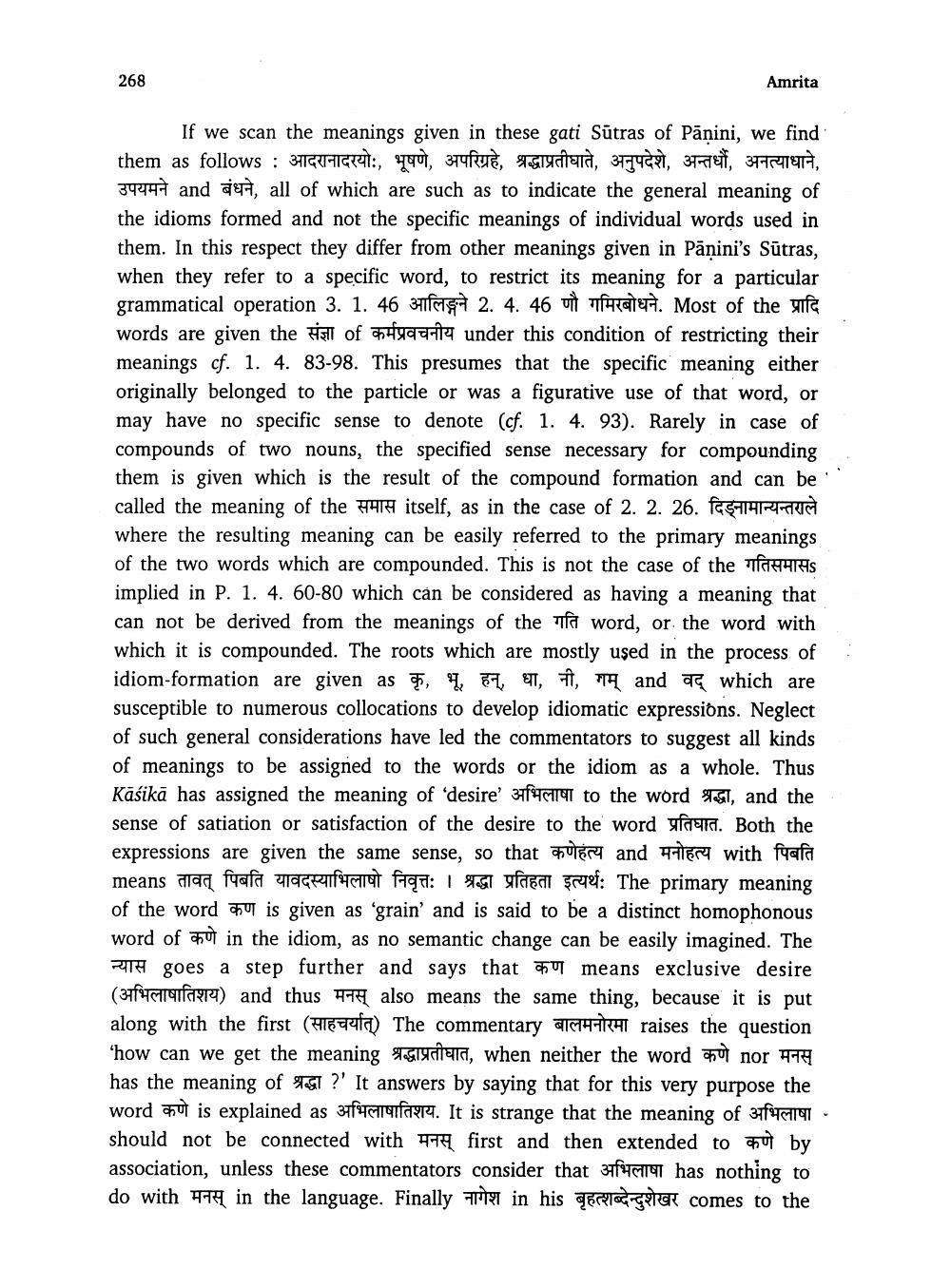________________
268
Amrita
If we scan the meanings given in these gati Sūtras of Pānini, we find them as follows : 34 :, 40, 374RUe, maglucard, 3194681, 3777eit, 34RT, 34247 and den, all of which are such as to indicate the general meaning of the idioms formed and not the specific meanings of individual words used in them. In this respect they differ from other meanings given in Pāņini's Sūtras, when they refer to a specific word, to restrict its meaning for a particular grammatical operation 3. 1. 46 fiş 2. 4. 46 uit T CTA. Most of the wife words are given the Hill of quite under this condition of restricting their meanings cf. 1. 4. 83-98. This presumes that the specific meaning either originally belonged to the particle or was a figurative use of that word, or may have no specific sense to denote (cf. 1. 4. 93). Rarely in case of compounds of two nouns, the specified sense necessary for compounding them is given which is the result of the compound formation and can be called the meaning of the 4414 itself, as in the case of 2. 2. 26. faş14PTRIC where the resulting meaning can be easily referred to the primary meanings of the two words which are compounded. This is not the case of the GTAS implied in P. 1. 4. 60-80 which can be considered as having a meaning that can not be derived from the meanings of the fact word, or the word with which it is compounded. The roots which are mostly used in the process of idiom-formation are given as कृ, भू, हन्, धा, नी, गम् and वद् which are susceptible to numerous collocations to develop idiomatic expressions. Neglect of such general considerations have led the commentators to suggest all kinds of meanings to be assigned to the words or the idiom as a whole. Thus Kāśikā has assigned the meaning of 'desire 39146141 to the word all, and the sense of satiation or satisfaction of the desire to the word ofera. Both the expressions are given the same sense, so that कणेहत्य and मनोहत्य with पिबति means ataq fuafa lag t fraa: 1 star fent ref: The primary meaning of the word of is given as 'grain' and is said to be a distinct homophonous word of out in the idiom, as no semantic change can be easily imagined. The
14 goes a step further and says that means exclusive desire (अभिलाषातिशय) and thus मनस् also means the same thing, because it is put along with the first (HTML) The commentary a14-RAT raises the question 'how can we get the meaning श्रद्धाप्रतीघात, when neither the word कणे nor मनस has the meaning of cel ?' It answers by saying that for this very purpose the word कणे is explained as अभिलाषातिशय. It is strange that the meaning of अभिलाषा - should not be connected with first and then extended to cut by association, unless these commentators consider that 371141 has nothing to do with in the language. Finally TTT in his EROGATOR comes to the




